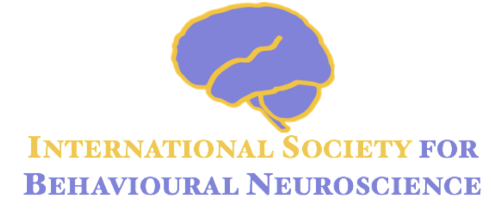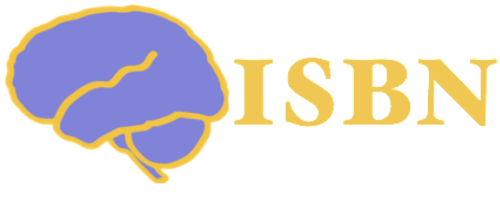22nd Annual Meeting of ISBN
June 13-17, 2014
Amsterdam, Netherlands
Organizers: Ellemarije Altena, Ysbrand van der Werf
VENUES
Reception: 13th June: Cafe de Jaren, Nieuwe Doelenstraat 20-22
Conference Venue: 14/15 June: “Spui 25”, Spui 25 (note the name of venue is the street address
Conference Venue: 16/17 June: Meeting Venue B: “Cafe Sluyswacht”, Jodenbreestraat 1
FUNCTIONS & EVENTS
Welcome Reception: Friday evening, June 13th
The reception was be held at Cafe De Jaren (Nieuwe Doelenstraat 20-22) from 5 pm to 9 pm. The reception includes drinks and finger food but not dinner; Cafe De Jaren also offers dinner and there are many restaurants around the corner. Partners and kids welcome.
Social Outing: Sunday afternoon, June 15th
Leaving at 12.30 pm, we will start with lunch on the Nieuwmarkt in the 15th century historic tower that served as a gate to the city of Amsterdam (http://www.indewaag.nl/en/). On our guided tour, we will visit interesting historic sites from where the city was first founded and take a boat tour through old (canals) and new (cultural harbour) Amsterdam. The day will end with dinner (optional; additional cost) at a small city beach – Pllek in North Amsterdam, with a great view on the Amsterdam skyline (http://pllek.nl/Pllek-Amsterdam-restaurant-NDSM-Yoga.html). The ferry back to the center of Amsterdam, every half hour until midnight, is free.
Banquet Dinner: Monday, June 16th.
The dinner was held at restaurant Greetje (Peperstraat 23: http://restaurantgreetje.nl/en/index.php)
MEETING SCHEDULE & PROGRAM
Presidential Speaker
Professor Eveline Crone
Prof. Crone received her PhD from the University of Amsterdam, and spent 2 years at UC Davis for her first post-doctoral research position. Having been appointed as Professor in Leiden (The Netherlands) in 2009 at the age of 33, she published over 85 peer reviewed papers as well as books on the cognitive and social-affective development of the adolescent brain. Her more recent work focuses on the development of cognitive control and decision-making in school-aged children and adolescents, neural mechanisms involved in peer relationships, and the role of brain development in psychosocial adjustment. In October 2013, she was appointed the youngest member of the esteemed Royal Netherlands Academy of Arts and Sciences.
http://www.socialsciences.leiden.edu/psychology/organisation/dev/staff/crone.html
Symposia
Superior colliculus and its role in blindsight, blindfight and blindflight
Chair: Ludise Malkova
Date: Saturday, 14th June
The superior colliculus has been extensively studied in the nonhuman primate with respect to visual orienting and eye saccades. Although considered a predominantly visual structure, it is also involved in threat-relevant motor behaviours. In rodents, the intermediate/deep layers of the superior colliculus (DLSC) together with deep layers of inferior colliculus, periaqueductal gray, hypothalamus, and the amygdala, have been referred to by some as the “brain aversion system” and have been described as part of the neural substrates underlying defensive behaviours. In the primate, disinhibition of DLSC evokes similar defensive behaviours, which are modulated by inhibition of the amygdala. In addition to mediating/modulating defensive responses, the colliculus constitutes a node in the pathway of detecting threat. Neuroimaging data in human subjects suggest functional as well as anatomical connectivity between the superior colliculus, pulvinar, and the amygdala as a subcortical pathway that is involved in fast and non-conscious perception of emotional stimuli (e.g. facial expressions). However, this pathway has not yet been confirmed by anatomical studies in primates. The proposed symposium will review experimental data relevant to the questions of functional and anatomical connections between the amygdala and superior colliculus and visual cortical areas in the context of conscious and non-conscious emotion perception and defensive behaviours.
Marco Tamietto will review human imaging data concerning the neurofunctional and neuroanatomical pathways sustaining non conscious perception of emotions.
Fadila Hadj-Bouziane will present fMRI data on the contribution of the amygdala to visual processing.
Ludise Malkova will review behavioural data based on pharmacological manipulation of DLSC and amygdala in nonhuman primates.
Patrick Forcelli will present data on anatomical connections between the amygdala, pulvinar, and superior colliculus.
Marco Tamietto: Neurofunctional and neuroanatomical pathways sustaining nonconscious perception of emotions in humans.
Fadila Hadj-Bouziane: How do amygdala lesions impact facial expression-evoked fMRI activity in inferior temporal cortex?
Ludise Malkova: Interaction between the superior colliculus and amygdala: behavioural effects in nonhuman primates.
Patrick Forcelli: Anatomical connections between the superior colliculus and amygdala.
Sleep and cognition in health and disease, from animal to human studies
Chair: Alice Cronin-Golomb
Date: Monday, 16th June
Sleep is increasingly recognised as a major factor in awake cognitive functioning. Nighttime brain activation reflects information processing of stimuli encounter the previous day(s), but also prepares the brain for optimal information processing the next day. Both fundamental human and animal studies have shown mechanisms of sleep-related interactions with cognitive processes; in neurological and psychiatric disorder sleep appears to contribute to both emotional and cognitive disturbances. Novel imaging approaches and sesnitive tasks begin to show the intricate relationship between sleep and awake brain functioning. In this symposium, we will present animal studies on sleep deprivation, followed by studies on sleep disturbances in humans; we will compare the effects of healthy sleep and disrupted sleep on subsequent cognitive performance, show selective deficits and sleep-related consolidation, in relation to normal sleep, aging and disordered sleep.
Guiseppe Bertini: sleep deprivation: why, when and how to induce transient cognitive impairments in rodents
Ellemarije Altena: Cognitive effects of sleeplessness in humans
Ysbrand van der Werf: Sleep-memory interactions in the healthy human brain
Laurie Miller: Disorders of sleep in epilepsy and their effects on memory
Avi Karni: Sleep and memory in young adults with ADHD and the elderly
Julien Doyon: Sleep Spindles and Motor Memory Consolidation

